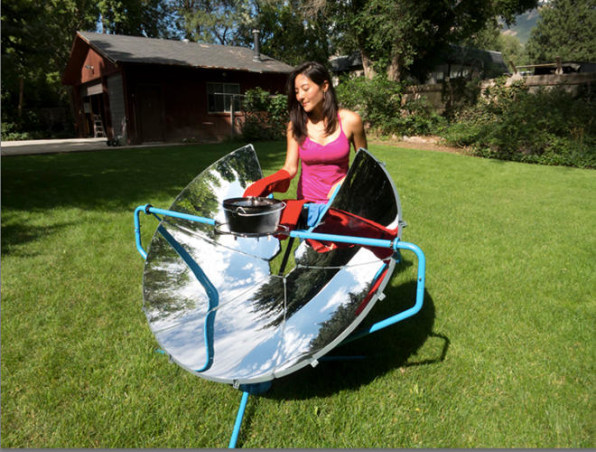Cooking On A Flat Top Stove
Solar cookers are, generally speaking, a recipe for failure. More than 200 designs (PDF) for solar grills, stoves, ovens and other cookers already litter the developing world landscape as rusting hardware or dusty blueprints. Hardly any have gained significant market share.
Yet retired MIT professor and mechanical engineer Dave Wilson sees an opportunity amid the failure. "People like to cook in the evening, sit under tree, enjoy themselves, and eat," says Wilson who lived in Nigeria while teaching. Existing solar cookers require people (mostly women) to sit and cook in the tropical sun during the hottest part of the day. Wilson had an epiphany: What if they could cook at night with the sun instead of charcoal and wood? "When I came out of Nigeria I got very keen on solar cookers," he says.

Almost 20 years have passed since Wilson started tinkering with a prototype in 1998. After several grants were rejected, Wilson's design caught the eye of backers at the TATA Trust. The Indian charity, Wilson says, is committing about $50,000 to back two years of fielding testing of the solar cooker.
"It's made a big difference," says Wilson. "My wife wasn't thrilled about all the time and money I was spending on this in the basement."

Wilson's design is simple, if unusual. The cooker uses a plastic lens, a thermal "battery" (lithium nitrate salts), and insulated storage to store heat after the sun goes down. During the day, sunlight concentrates on a metal plate that heats up molten salts reaching temperatures as high as 482 degrees F (250 degrees C). As evening approaches, the lens is replaced by a cover. The molten salts stay searing hot for up to six hours. When it's time to cook, simply open the cooker and start.
If all goes as planned, Wilson's stove may finally succeed where decades of efforts to replace coal, wood, and dung fuels in developing countries have failed. The consequences for the environment and public health in poor countries has been disastrous: 2 million people die each year from indoor smoke and wood gathering destroys vast swaths of forests. So far, the sun simply hasn't competed on price, convenience and ease of use with other fuels. The Proceedings of the National Academy of Science reports that 94% of Bangladeshi women surveyed knew cooking smoke posed a serious health hazard but most preferred to spend their money on "doctors, schools, electricity, clean water, latrines, seeds for planting, and structures to protect their land from flooding," not cleaner stoves.
Cooking On A Flat Top Stove
Source: https://www.fastcompany.com/2682812/a-stove-that-cooks-with-molten-salt
Posted by: darbyacend1994.blogspot.com

0 Response to "Cooking On A Flat Top Stove"
Post a Comment